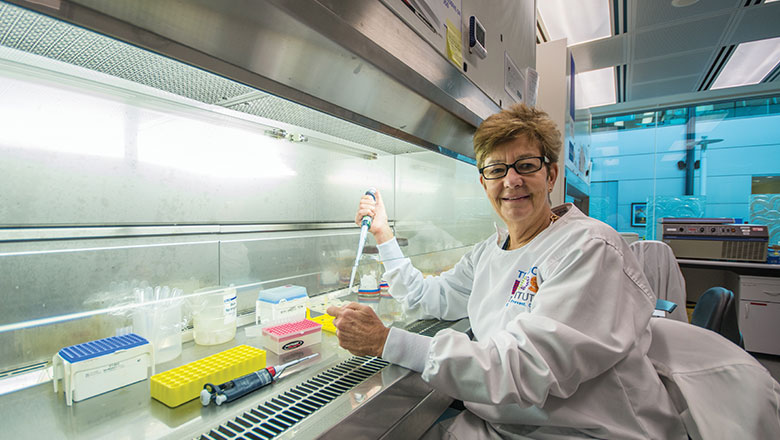Search

News & Events
Sun safe: balancing the risks and benefitsThe D-Light program, set up in 2014, aims to shed light on the amount of sun exposure that will promote good health in children and adolescents.
In this The Kids Research Institute Australia subsite, our Rett syndrome research team manages a national and international database of Rett syndrome.
Research
Polyunsaturated fatty acid intake and blood pressure in adolescentsThis study examined cross-sectional associations between BP and dietary intake of PUFAs in 814 adolescents from the RAINE cohort study.
Research
Interactions between acute lymphoblastic leukemia and bone marrow stromal cells influence response to therapyTo identify links between drug resistance and gene deregulation we used oligonucleotide microarray technology.
Research
The Dyslexia Candidate Locus on 2p12 Is Associated with General Cognitive Ability and White Matter StructureTo further explore the effect of disorder-associated genes on cognitive functions, we investigated whether they play a role in broader cognitive traits.
Research
The association between playgroup participation, learning competence and social-emotional wellbeing for children aged four-five years in AustraliaThis study provides evidence that continued participation in playgroups is associated with better outcomes for children from disadvantaged families.
Research
Genome-Wide Association Study to Identify the Genetic Determinants of Otitis Media Susceptibility in ChildhoodWe identified several novel candidate genes which warrant further analysis in cohorts matched more precisely for clinical phenotypes.
Research
Sensitizing and Th2 Adjuvant Activity of Cysteine Protease AllergensHere, we report on a model that does not use Th2-skewing adjuvants and yet achieves sensitization solely via the nasal mucosa.
Research
Anaphylaxis triggered by benzyl benzoate in a preparation of depot testosterone undecanoateWe report the first case of an anaphylactic reaction to Reandron 1000 (depot testosterone undecanoate with a castor oil and benzyl benzoate vehicle).
Research
Socioeconomic disparities in physical health among Aboriginal and Torres Strait Islander children in Western AustraliaWe sought to provide insights by examining socio-economic disparities in physical health outcomes among Aboriginal and Torres Strait Islander children in WA.
